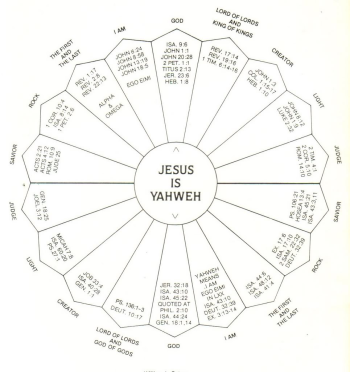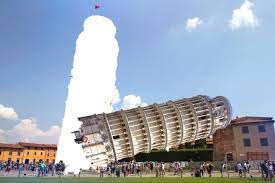10 Then the followers went back home. 11 But Mary stood outside the tomb, crying. While she was crying, she bent down and looked inside the tomb. 12 She saw two angels dressed in white sitting where Jesus’ body had been. One was sitting where the head had been; the other was sitting where the feet had been.
13 The angels asked Mary, “Woman, why are you crying?”
Mary answered, “They took away the body of my Lord, and I don’t know where they put him.” 14 When Mary said this, she turned around and saw Jesus standing there. But she did not know that it was Jesus.
15 He asked her, “Woman, why are you crying? Who are you looking for?”
She thought he was the man in charge of the garden. So she said to him, “Did you take him away, sir? Tell me where you put him. I will go and get him.”
16 Jesus said to her, “Mary.”
She turned toward him and said in Aramaic,
“Rabboni,” which means “Teacher.”
17 Jesus said to her, “You don’t need to hold on to me! I have not yet gone back up to the Father. But go to my followers[
a] and tell them this:
‘I am going back to my Father and your Father. I am going back to my God and your God.’”
18 Mary Magdalene went to the followers and told them, “I saw the Lord!” And she told them what he had said to her.
Jesus Appears to His Followers
19 The day was Sunday, and that same evening the followers were together. They had the doors locked because they were afraid of the Jewish leaders. Suddenly, Jesus was standing there among them. He said, “Peace be with you!” 20 As soon as he said this, he showed them his hands and his side. When the followers saw the Lord, they were very happy.
21 Then Jesus said again, “Peace be with you. It was the Father who sent me, and I am now sending you in the same way.” 22 Then he breathed on them and said, “Receive the Holy Spirit. 23 If you forgive the sins of anyone, their sins are forgiven. If there is anyone whose sins you don’t forgive, their sins are not forgiven.”
Jesus Appears to Thomas
24 Thomas (called Didymus) was one of the twelve, but he was not with the other followers when Jesus came. 25 They told him, “We saw the Lord.” Thomas said, “That’s hard to believe. I will have to see the nail holes in his hands, put my finger where the nails were, and put my hand into his side. Only then will I believe it.”
26 A week later the followers were in the house again, and Thomas was with them. The doors were locked, but Jesus came and stood among them. He said, “Peace be with you!” 27 Then he said to Thomas, “Put your finger here. Look at my hands. Put your hand here in my side. Stop doubting and believe.”
28 Thomas said to Jesus,
“My Lord and my God!”
29 Jesus said to him, “You believe because you see me. Great blessings belong to the people who believe without seeing me!”
Why John Wrote This Book
30 Jesus did many other miraculous signs that his followers saw, which are not written in this book. 31 But these are written so that you can believe that Jesus is the Messiah, the Son of God. Then, by believing, you can have life through his name.
No contradiction in the text, Jesus is speaking as a man. Thomas was recognizing Jesus's God Nature.









